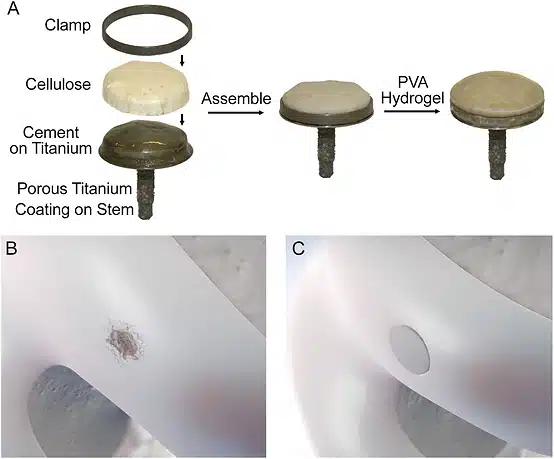The developed artificial cartilage last August by researchers at Duke University is ready to enter the clinical trial phase. It could change the way we deal with knee osteoarthritis.
A relief for millions of people
Osteoarthritis strikes nearly one in six adults around the world, causing pain and limitations in daily life. Current treatments such as painkillers, physiotherapy and corticosteroid infiltrations are not always effective and, in some cases, the only remedy is a knee prosthesis. But this new artificial cartilage could offer a less invasive and more promising solution.
The research team led by professors Benjamin Wiley e Ken Gall worked from hydrogel. Synthetic cartilage is made from thin sheets of cellulose fibers impregnated with polyvinyl alcohol, a gelatin-like material that can retain 60% water.

Bionic cartilage
In the tests carried out, the hydrogel proved to be 26% stronger in tension and 66% stronger in compression compared to natural cartilage. Furthermore, the plant has shown itself to be three times more resistant to wear and deterioration, offering a lasting solution for those suffering from knee problems. It seems appropriate to say that, more than a cure, this is a real upgrade.
The plant is currently finishing its testing phase on sheep by Sparta Biomedical, and clinical trials on humans are finally about to start. If all goes well, this revolutionary artificial cartilage could fundamentally change the way we deal with knee pain and osteoarthritis, offering a more effective and long-lasting solution.

The future is painless
If the clinical trials are successful, we could say goodbye to knee pain: there is still some work to do, but the path seems clear. Follow the developments of this research: here are all the documents published in Advanced Functional Materials.


